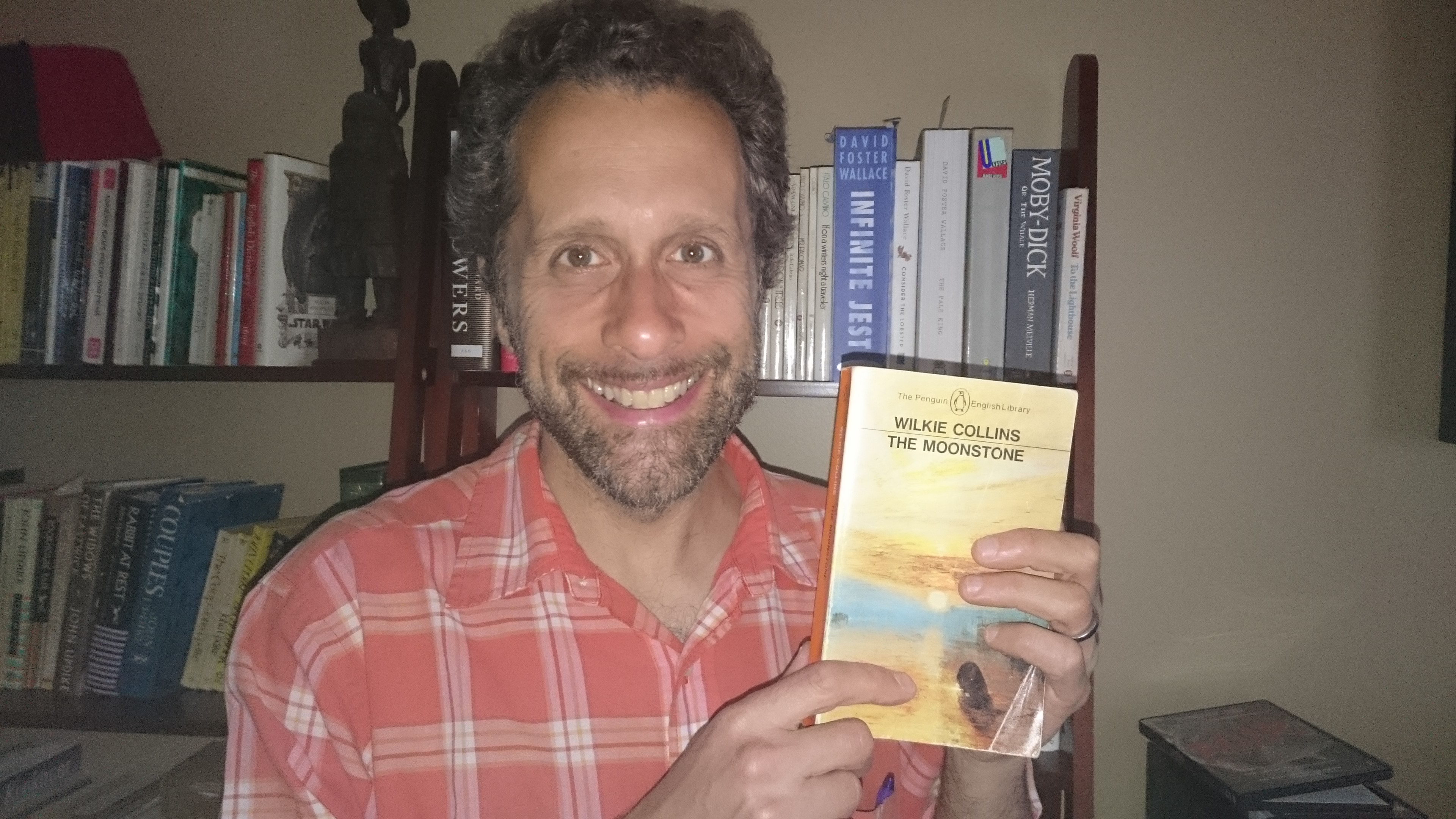
After assigning Kathryn Lofton’s Oprah: Gospel of an Icon, which discussed, among other things, how Oprah’s book club created a quasi-religious community, I was thrilled to be asked to be on this web page! I am currently reading The Moonstone by Wilkie Collins. Completed in 1868, The Moonstone is the first detective novel in English. As you may be able tell from the dated copy I am holding, I was given this book in the early 1980s, but couldn’t get through it. Now that I spend most of my time worrying about the 14th and 15th centuries, I have found that 19th century novels are akin to futuristic science fiction page-turners.
The moonstone is a legendary diamond looted from a temple in India by British soldiers. The temple’s hereditary guards, Brahmins I believe, seem to stop at nothing, including infiltrating upper-class British parties as jugglers, to get it back from the families of the British soldiers. As a scholar of religion, I am, of course, cheering for the guards, but am also struck by how, on one hand, the novel depicts a dichotomy between a religious Orient and rational, secular Occident. Yet, on the other hand, the British certainly believe the legend that the diamond will bring bad luck to whomever possesses it and how the Indian guards, while ostensibly motivated by religion, are certainly aware of the diamond’s economic value.
The book’s portrayal of the servants, particularly Rosanna Spearman, is complex and sympathetic. Rosanna was once in a reformatory for theft, becomes a suspect in the theft of the diamond, and ends up committing suicide even though she was not the culprit. As a whole, the novel is more character-driven than modern examples. Yeah, the 500 page length and slowish pace turned me off as a 12 year-old, but as I read I am struck by how well-crafted the book is and by how the experience of reading is much closer to what solving a mystery might actually be like.

